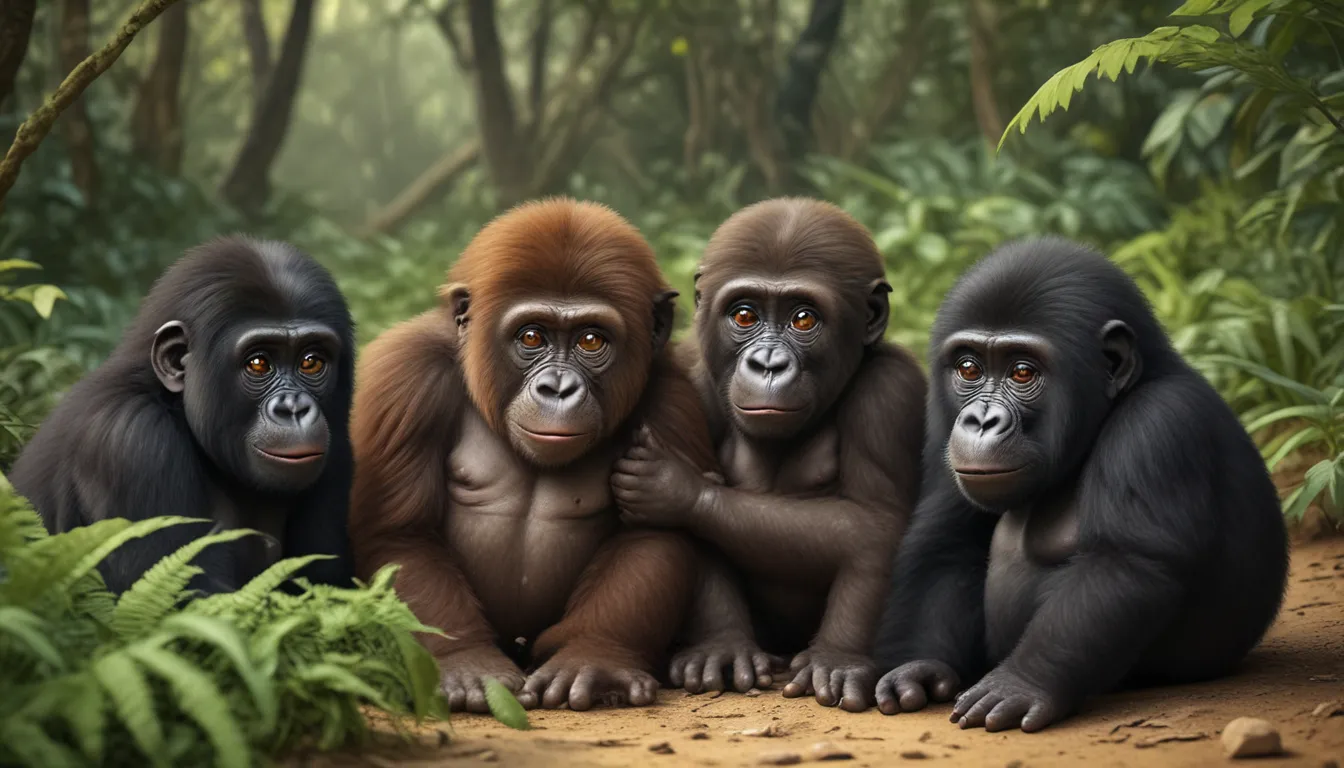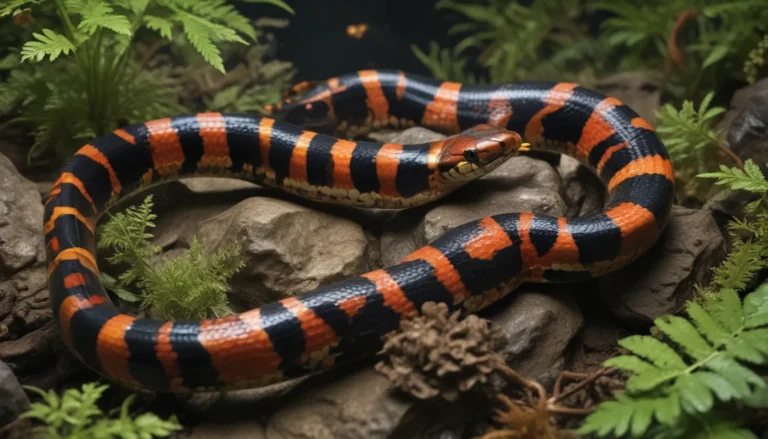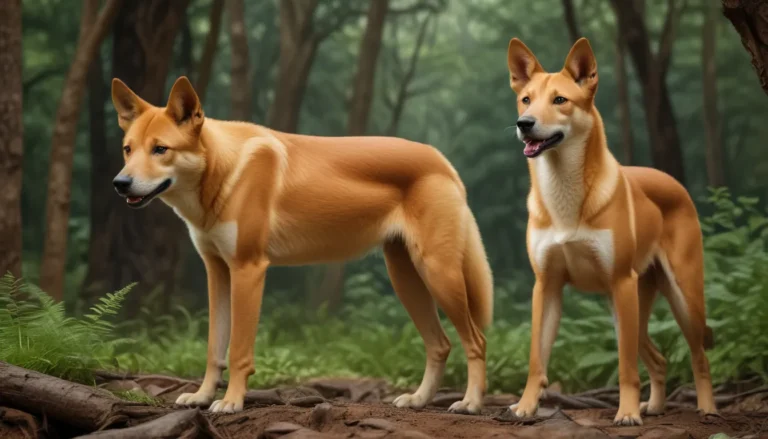The pictures we use in our articles might not show exactly what the words say. We choose these pictures to make you interested in reading more. The pictures work together with the words but don’t take their place. The words still tell you the important facts.
Gorillas, the majestic inhabitants of the dense forests of central Africa, have always captivated humans with their strength and intelligence. Among these incredible primates, baby gorillas hold a special place. These pint-sized versions of their larger relatives not only charm us with their adorableness but also play a crucial role in the survival and conservation of the species.
Let’s Dive into the World of Baby Gorillas
In this article, we will explore the enchanting world of baby gorillas and uncover 20 remarkable facts about these endearing creatures. From their birth and development to their social interactions and unique characteristics, prepare to be captivated by the charm and wonder of baby gorillas.
Key Insights:
- Baby gorillas, similar to human infants, rely on their mothers for care, warmth, and nourishment. They develop unique personalities, playfully learn, and bring joy to wildlife sanctuaries. - Baby gorillas face threats like habitat loss and poaching, making conservation efforts crucial for their survival. Their presence is vital for the continuity of gorilla populations.
Baby Gorillas: Little Wonders of the Jungle
Just like human babies, gorilla infants are adorable and require care and protection from their parents or other adult gorillas in their group. These little ones are cherished members of their gorilla families.
From day one, baby gorillas form a strong bond with their mothers. They spend a significant amount of time with their mothers, learning important skills and behaviors that will help them thrive in the wild.
After a few months of crawling and relying on their mothers for support, baby gorillas start taking their first steps. It’s an exciting milestone in their development.
Just like human children, baby gorillas love to play. They engage in various activities such as chasing, wrestling, and climbing trees. Playtime helps them develop their physical abilities and social skills.
As they grow, baby gorillas observe and mimic the behaviors of the older gorillas in their group. They learn important skills such as foraging, grooming, and communication by watching and imitating others.
While they still nurse from their mothers, baby gorillas gradually begin to incorporate solid food into their diet. They learn to consume leaves, fruits, and other plant material.
Each baby gorilla has a distinct pattern on their fingertips, similar to human fingerprints. This distinct pattern can be used to identify individuals within a group.
With proper nutrition and care, baby gorillas experience significant growth during their early years. They can almost double their weight within the first year of life.
Although they cannot speak like humans, baby gorillas communicate with their mothers and other gorillas through a wide range of vocalizations, including grunts, barks, and hoots.
Just like humans, baby gorillas have unique personalities. Some may be more curious, while others may be more cautious. Their individual traits shape who they become as adults.
Female gorillas, whether they are mothers or not, often show a nurturing side towards baby gorillas. They play a significant role in their upbringing and protection.
While males are not typically responsible for directly caring for baby gorillas, they can act as protectors within the group, ensuring their safety and well-being.
One of the most adorable sights in the animal kingdom is a baby gorilla hitching a ride on their mother’s back. This allows the mother to move around while keeping a watchful eye on her little one.
In order to withstand the sometimes harsh and cold environments of their natural habitat, baby gorillas have a dense coat of hair that provides insulation and protects them from the elements.
Gorillas are known for their impressive climbing abilities, and baby gorillas start practicing their climbing skills from an early age. They often climb low branches or cling to their mothers’ backs while she navigates through the trees.
As they enter adolescence, baby gorillas gradually gain more independence from their mothers. They explore their surroundings, test their boundaries, and start establishing their own place within the gorilla group.
Like adult gorillas, baby gorillas face threats such as habitat loss, poaching, and diseases. Conservation efforts are crucial to protect these vulnerable creatures and ensure their survival.
The presence of healthy and thriving baby gorillas is a positive sign for the conservation of their species. Their survival ensures the continuity of their populations for future generations.
Visitors to gorilla sanctuaries and parks are often captivated by the charm and cuteness of baby gorillas. These young ones inspire a sense of awe and appreciation for the beauty of nature and the importance of conservation efforts.
In Conclusion
In conclusion, baby gorillas are fascinating creatures that captivate our hearts with their adorable appearance and social behaviors. From their unique diet to their playful nature, there is so much to learn and appreciate about these incredible animals. As we continue to study and protect their natural habitats, we can ensure that future generations will have the opportunity to witness the beauty and wonder of baby gorillas in the wild.
FAQs: Learn More About Baby Gorillas
Q: How long does a baby gorilla stay with its mother?
A: Baby gorillas typically stay with their mothers for approximately three to four years, during which they learn essential survival skills and social behaviors.
Q: What do baby gorillas eat?
A: Baby gorillas are exclusively breastfed by their mothers for the first six months. As they grow older, they begin to transition to solid foods, including fruits, leaves, shoots, and occasionally insects.
Q: How do baby gorillas communicate?
A: Baby gorillas communicate through various vocalizations, gestures, and body language. They learn from observing their mothers and other members of their social group.
Q: Are baby gorillas endangered?
A: Yes, baby gorillas, like their adult counterparts, are endangered due to habitat loss, poaching, and disease. Conservation efforts are crucial to their survival.
Q: Are baby gorillas playful?
A: Yes, baby gorillas can be incredibly playful. They engage in games, mock fights, and use their surrounding environment to entertain themselves and develop their motor skills.
Our Commitment to Quality and Authenticity
Our commitment to delivering trustworthy and engaging content is at the heart of what we do. Each fact on our site is contributed by real users like you, bringing a wealth of diverse insights and information. To ensure the highest standards of accuracy and reliability, our dedicated editors meticulously review each submission. This process guarantees that the facts we share are not only fascinating but also credible. Trust in our commitment to quality and authenticity as you explore and learn with us.






